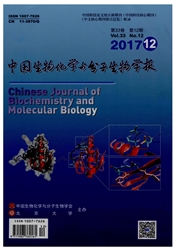

 中文摘要:
中文摘要:
环境内分泌干扰物广泛地存在于人类的生存环境中,大多数具有显著的生殖毒性,不仅影响胚胎神经系统及生殖系统的发育,并可有传代效应及致癌作用.研究表明,环境内分泌干扰物大多是通过表观遗传学机制发挥其毒性作用.目前,此方面的研究主要集中在胎儿及新生儿期暴露于内分泌干扰物对机体基因甲基化修饰的改变方面.本文就环境内分泌干扰物对胚胎发育的影响,及其传代效应和致癌作用在基因甲基化修饰调控方面作一综述.
 英文摘要:
英文摘要:
Environmental endocrine disruptors (EEDs) widely exist in our living environment. With significant reproductive toxicity, these compounds not only affect embryonic development but also exhibit transgenerational inheritance effect and carcinogenesis effect. The most EEDs produce toxicity through epigenetic mechanisms focused on DNA methylation changes after explosing to EEDs at fatal or neonatal period. In this paper, the effects of EEDs on embryonic development, transgenerational inheritance and eareinogenesis at the aspect of DNA methylation modification regulatory mechanisms are reviewed.
 同期刊论文项目
同期刊论文项目
 同项目期刊论文
同项目期刊论文
 期刊信息
期刊信息
